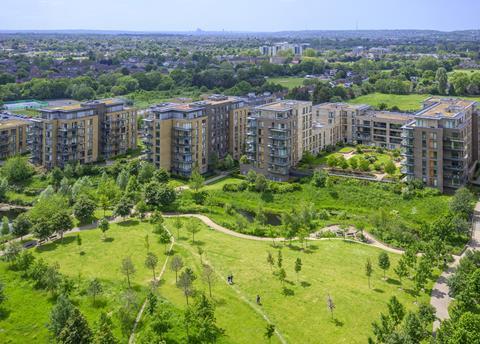New regulations will apply to small sites from April
Mandatory biodiversity net gain regulations came into force for major developments today (Monday).
The new planning rules, which require developers to submit biodiversity net gain (BNG) plans as part of their planning applications before schemes can be approved, has been in the making since the Environment Act 2021 was passed.

It was originally due to come into force last November and after an initial postponement until January, its introduction was pushed back again after delays to secondary legislation.
Developers will now have to demonstrate that their projects will boost biodiversity by at least 10% and maintain this for 30 years or more, either on site, off site or both.
They can also combine these options by purchasing BNG credits from Natural England, although the government has described this as a “last resort”.
The policy will be extended to smaller sites from April and to nationally significant infrastructure projects from November 2025.
Last week, the British Property Federation warned that planning departments were not yet ready to deal with the rules due to lack of resources, capacity and skills.
Commenting on the application of the rules from today, housebuilder Bellway’s group head of biodiversity Neil Beamsley said BNG had “significantly shaped” its approach to building new homes “for the better”.
“Globally we are experiencing a ‘biodiversity crisis’ as the impact of human activity puts unsustainable pressure on our natural systems,” he said.
>> Will the government’s biodiversity plans prove a net gain for the housebuilding sector?
“This new regulation, which comes into force today, enables housebuilders - like Bellway - to demonstrate how they are helping to reversing this trend.
“It won’t be a linear path. BNG will need to be considered on a case-by-case basis as impact varies depending on the size of the site, its location, and its history.”
Institution of Civil Engineers president Anusha Shah, said BNG legislation was a “step in the right direction” but not “a magic fix”.
“Prioritising protecting natural habitats and biodiversity doesn’t just have positive implications for nature, people will benefit from projects being developed in this way; whether it is through increased access to green spaces, improving our health and wellbeing and creating attractive places to live and work, or by helping us mitigate carbon emissions and adapt to climate change,” she said.
Angus Walker, partner at legal firm BDB Pitmans, said the roll out of the policy would be “reassuring” after successive delays.
“For the first time, improving biodiversity moves from being an aspiration to a mandatory requirement of obtaining planning permission,” he said.
“While there is likely to be a dip in the number of planning applications immediately following the rules coming into effect, as the regime becomes more familiar to developers and more landowners realise the economic benefits it offers them, activity will pick up and buying BNG land will become another routine part of the planning process.
“The major unknown now is how many local authorities will stick to the Government’s 10% mandatory gain in biodiversity, or whether many will follow the example of authorities like Tower Hamlets and Kingston upon Thames and set a higher target – 30% in the case of these two councils.”











No comments yet